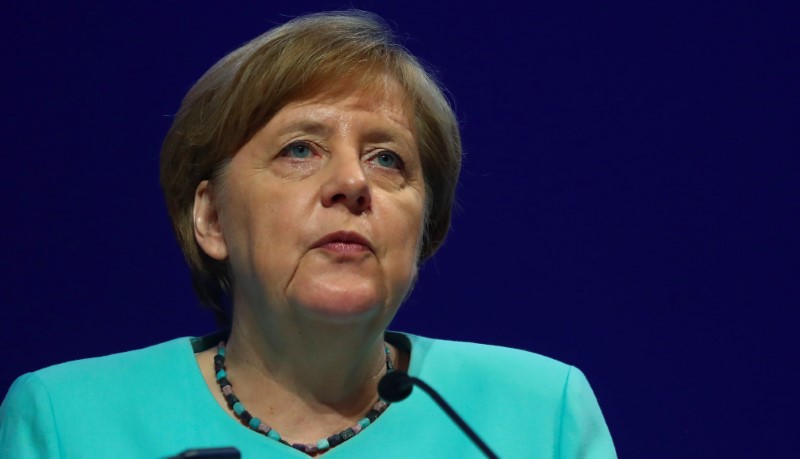BERLIN (Reuters) - Germany is considering whether some industrial sectors should be designated as being of strategic importance to Europe, Chancellor Angela Merkel said, adding that there was a risk of companies becoming over-dependent on the emerging giant.
In an interview with weekly magazine WirtschaftsWoche, Merkel said Europe needed to be wary about opening its markets to products that had been developed with public subsidies in China and should demand reciprocity on access to public tenders.
China's economic might puts it in a position to pressure weaker European Union members, she added.
Earlier this month, Greece blocked a European Union statement criticising China's human rights record. Hungary, another large recipient of Chinese investment, has also vetoed similar measures.
"Seen from Beijing, Europe is an Asian peninsula," Merkel said.
"We see this differently, but the fact is that large parts of the German economy are dependent on China. That means we need to find a way of turning China's demands to the benefit of all."
Her comments echoed proposals by France's President Emmanuel Macron, but stopped short of his call for Europe to have the power to veto Chinese investments.
"We in the German government are considering defining industries of strategic importance to Europe," such as microchip manufacture, she said. The European Commission will also consider "screening" sales to China of companies with "strategic" expertise, in fields like artificial intelligence.

China is an increasingly important partner for Europe both politically and economically. Beijing stepped up as an ally for Europe in the fight against climate change after U.S. President Donald Trump's decision to withdraw from the Paris Climate Agreement.